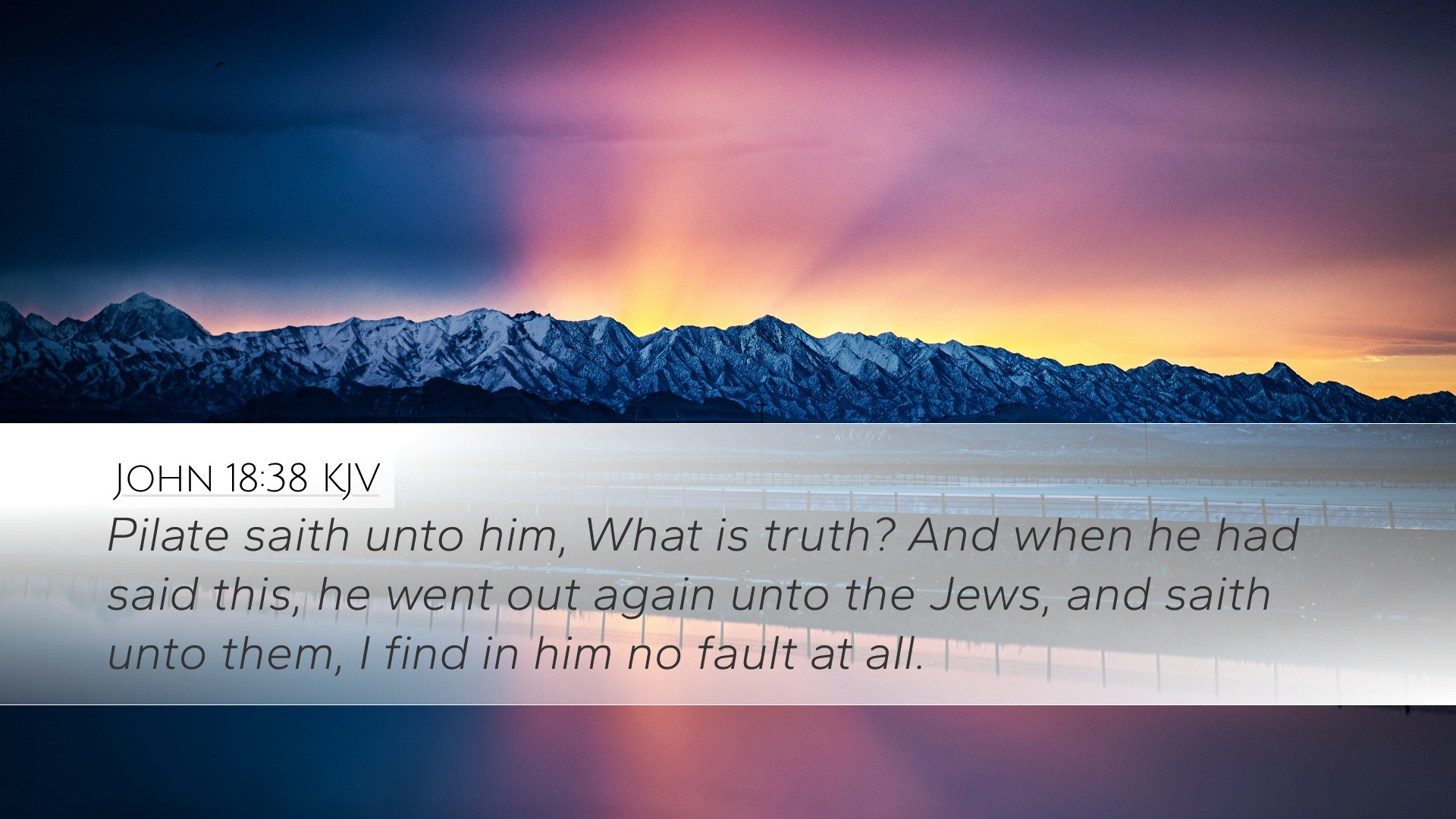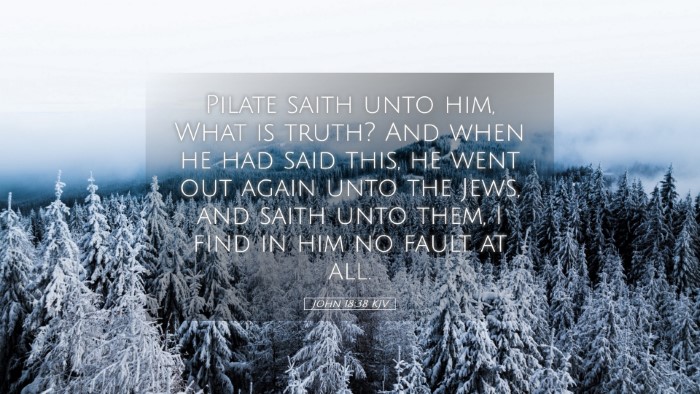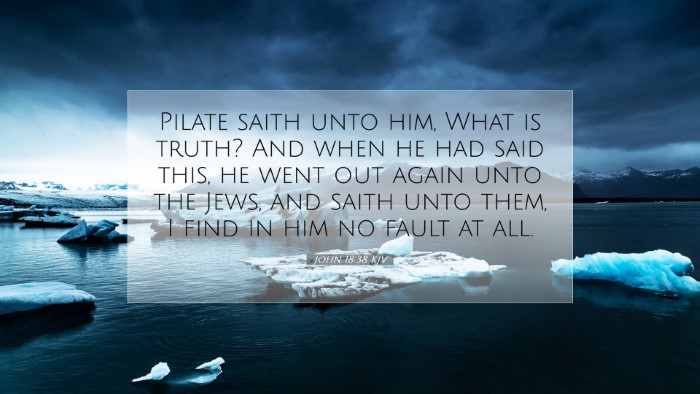Commentary on John 18:38
Verse: "Pilate said to him, 'What is truth?' And when he had said this, he went out again to the Jews and said to them, 'I find no guilt in him.'
Introduction
This profound verse captures a pivotal moment in the interrogation of Jesus by Pontius Pilate. As scholars and theologians examine the layers of meaning within this brief dialogue, it is essential to draw from historical context, theological implications, and the overarching narrative of the Gospel of John.
Contextual Background
In the preceding verses, Jesus stands before Pilate, representing not only the culminating point of His earthly ministry but also the embodiment of divine truth. The encounter occurs shortly after Jesus' arrest and the betrayal by Judas Iscariot, setting the stage for the trial that will lead to His crucifixion.
Pilate, the Roman governor, symbolizes the political authority of the time, grappling with the tension between Roman law and the burgeoning claims of Jesus as the Messiah. It is within this framework that his question—‘What is truth?’—emerges, revealing his inner confusion and skepticism about moral and spiritual absolutes.
Interpretations and Theological Insights
1. The Nature of Truth
Matthew Henry's Commentary: Henry emphasizes the philosophical nature of Pilate's inquiry, indicating that Pilate’s rhetorical question reflects a skepticism that permeated Roman culture. His lack of engagement with the truth presented by Jesus suggests a prevailing relativism. For Henry, truth is not an abstract concept but a personal encounter with Jesus, who stated (John 14:6) that He is the Truth.
2. Pilate's Indecision
Albert Barnes' Notes: Barnes explores Pilate’s dilemma, noting that his question reveals an inability to discern and commit to a truth that confronted him. His subsequent declaration of finding ‘no guilt’ in Jesus indicates a recognition of Jesus’ innocence but also highlights Pilate's moral vacuity—the struggle between political expediency and justice.
3. The Contrast between Earthly Authority and Divine Truth
Adam Clarke's Commentary: Clarke presents an insightful contrast between Pilate, a man representing earthly authority, and Jesus, who embodies divine truth. Pilate's question implies that truth is elusive to him, a reflection of the moral and ethical disorientation prevalent during that time. Clarke highlights that while Pilate seeks to distance himself from the situation, his inquiry becomes a profound statement about human nature—our quest for meaning amidst a chaotic world.
The Philosophical Implications
Pilate’s question, “What is truth?” resonates through the ages, challenging believers to confront the nature of truth in their lives. The ambiguity of the question invites deep reflection within a postmodern context, where subjective interpretations often shape belief systems. Jesus, in contrast, reveals that truth is not only a concept but a person, embodying integrity, love, and righteousness.
The Implications for Believers
- The Call for Discernment: Believers are urged to pursue truth actively, engaging with the Scriptures and recognizing Jesus as the ultimate standard of truth.
- The Response to Relativism: In a world where truths can feel relative, the call remains to acknowledge the absolute nature of Christ, who transcends cultural and societal norms.
- The Role of Faith: Faith necessitates a commitment to truth, even when circumstances challenge our understanding and acceptance.
Conclusion
John 18:38 is a poignant reminder of the struggle between human authority and divine truth. Pilate’s questioning reflects a broader human experience—the search for meaning and certainty amidst confusion. The responses elicited from this encounter invite pastors, students, and scholars to not only analyze the text but to engage with the truth about Jesus, who is the fulfillment of all truths.
As believers continue to navigate the complexities of life and faith, the question posed by Pilate remains; it urges each individual to seek a deeper understanding of who Jesus is and how He reveals the nature of truth in a world so often clouded by doubt and skepticism.


